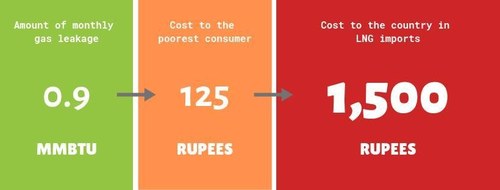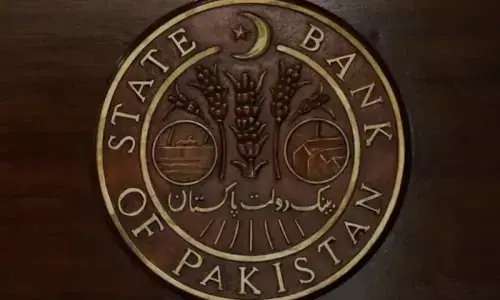Pakistan has regressed from being self-sufficient in natural gas to becoming a gas importer faced with chronic shortages and rationing.
This is a result of flawed policy making and lack of vision in the development of the energy sector infrastructure. Karachi, the economic hub of Pakistan, is bearing the brunt of the mismanagement in the energy sector.
The recent sacking of managing directors of Sui Southern Gas Company (SSGC) and Sui Northern Gas Pakistan Ltd (SNGPL) raises serious questions about the ability of the regulator and the ministries concerned to pre-empt a crisis. That was not the first time that a gas crisis crippled the country. It has become the norm. If the situation is not addressed, increased demand for power in summer will expose weaknesses in the system.
Instead of strengthening systems for better forecasting and management of resources, the focus largely remains on putting the blame at the end of every crisis on the most readily available scapegoat. So, besides the demoralising step of firing the gas companies’ managing directors — who were responsible for neither gas production nor its import — no sustainable initiative seems to have been taken so far to ensure a better outcome in the next winter season.
With the leadership vacuum that these two gas utilities are facing at this crucial juncture, how are they any better prepared to avert the additional crisis that has begun to affect millions of people over the last few years?
Karachi experienced an exacerbated natural gas cut this winter, which compromised the productivity of the industrial sector. The gas crisis may return in summer
Despite the severity of the situation, the regulators and the ministries concerned appear to be content with stop-gap measures, which will only add to the travails of the people and industries. Last year, SSGC curtailed gas supply to K-Electric, which created a shortfall of around 500 megawatts in Karachi.
SSGC curtailed gas supply during the summer months as a pressure tactic to recover disputed arrears from K-Electric. A month into the crisis, the then prime minister Shahid Khaqan Abbasi called a special meeting of the Cabinet Committee on Energy on April 23, 2018. He directed SSGC to provide required gas to K-Electric to meet electricity demand in Karachi. He also ordered the resolution of the dispute over outstanding dues of the Karachi Water and Sewerage Board (KW&SB), SSGC and KE, which led to a dramatic improvement in the power situation. Almost a year after this decision, we see no progress in addressing the real cause of the conflict between SSGC and KE, which is the settlement of arrears.
Former federal minister for power Awais Leghari wrote an open letter to the next government as he was exiting office. He talked about the lack of an integrated plan for the power sector and electricity policy. Such an integrated plan needs to be put in place to address the whole gamut of issues being faced by the electricity sector, including the circular debt. The unresolved issue of payables and receivables is not provincial in nature and cannot be resolved at the provincial level alone.
This winter, Karachi has been experiencing an exacerbated natural gas cut, which is compromising the productivity of the industrial sector. The gas crisis may erupt in the summer again, causing far-reaching consequences for the people and industries of Karachi.
The deadlock on arrears is also cited as one of the major reasons behind the delay in K-Electric’s proposed acquisition by Shanghai Electric Power (SEP). The Chinese company has a track record of scaling up Shanghai’s power supply from 3,000MW to 30,000MW within 10 years.
SEP initially expressed its intention to acquire K-Electric back in 2016. It has periodically been renewing its expression of interest since then. But the conclusion of the deal is incumbent upon the resolution of the issue of payables and receivables. SEP and its investment will not just benefit Karachi or Sindh. It will go a long way in guaranteeing a loadshedding-free future for Karachi and the windfall will directly impact national economic growth.
While the PTI-led government seems committed to addressing some major challenges facing Karachi, there needs to be an urgent resolution of the circular debt issue to save Karachi from an avoidable crisis this summer.
The writer is a freelancer
Published in Dawn, The Business and Finance Weekly, March 11th, 2019


































